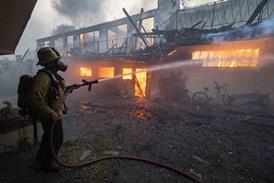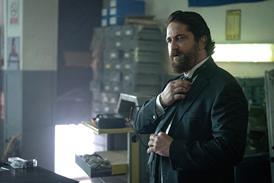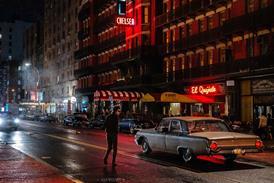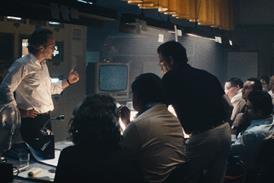Dir: John Moore. US 2001. 105 mins
The US military couldn't have asked for a more effective recruitment tool than this rousing, high-concept action feature about a young navy pilot trapped behind enemy lines in Bosnia, who must outwit and evade his legion of pursuers until the Marines can arrive to rescue him. Given the patriotic fervour sweeping America in the wake of the current war in Afghanistan, 20th Century Fox can expect a gung-ho reception for its suddenly topical combat story, whose release was pushed forward from early 2002 to take advantage of the popular mood. More importantly, the film should find itself with an unusually seaworthy pair of legs. But one man's patriotism is another man's jingoism and while action-enthusiasts worldwide will thrill to the top-notch aeronautic acrobatics on display, few overseas viewers will embrace this very US-centric tale of heroism and derring-do with the enthusiasm of domestic audiences.
Navy jet navigator Lt Burnett (Wilson) is part of a NATO mission based in the Adriatic, but is so frustrated by the lack of action while diplomats work on a peace treaty between warring Serbs and Bosnians that he tenders his resignation. "I signed up to be a fighter pilot," he tells his commanding officer, Admiral Reigart (Hackman), a gruff veteran who sympathises with the younger man's passion but knows his place in the chain of command.
Partly as punishment, Reigart sends Burnett and pilot Stackhouse (Macht) on a reconnaissance mission to take aerial photographs over Bosnia. Burnett notices some curious radar activity and convinces his buddy to fly their F-18 just outside the assigned parameters to investigate. Immediately they are set upon by surface-to-air missiles and forced to parachute to safety.
But the ground offers little comfort as Burnett watches horrified while men in Serb uniforms execute Stackhouse. He takes off running, with several hundred scowling Serb thugs in hot pursuit. Meanwhile, back on the USS Carl Vinson, Reigart is ordered not to try and rescue Burnett, lest the attempt muddy the waters of the peace process. Reigart, close to retirement, must decide whether to risk his career to save the cocky flyboy.
In his feature directorial debut, commercials director John Moore favours the same kind of dizzying, zig-zag camera work; high speed/slo-mo/stop-motion/skip-motion shooting style; and lickety-split editing so common in today's commercials, music videos and Matrix movie clones. Constant motion is the name of the game, be it the actors, the edits or the camera, which swoops and soars and circles round and around. The noise level is also steady - and insistent. A cacophony of drums, percussion instruments, low rumbles and even a heavenly choir provide a non-stop soundtrack which might best be described as excessive.
Excessive would also describe the amount of firepower which Burnett somehow manages to elude as he races through a field of exploding mines which fall like dominoes all around him but leave him unharmed. Or the village which is razed but somehow misses our hero. To his credit, however, Moore keeps the pace going and the tension level high and he certainly has a way with aerial sequences. The most entertaining section of the film is the 10-minute sequence in which the F-18 tries to outwit the missiles on its tail (kudos also to the visual effects artists who made this scene possible).
Given the film's heavy reliance on visual gimmicks - from pyrotechnics and special effects to varied shutter speeds and altered frame rates - it is remarkable that Wilson proves such an effective performer, bringing a likeable cockiness and irreverent humour to his role. No one, including Hackman, fares as well, but it is Burnett and Wilson that the audience root for and the latter manages to keep us on board for the whole ride.
A throwaway sequence intended to elicit cheers from Americans concerns a truckload of good-guy Bosnian civilians, weaving down the road listening to American rock 'n' roll music. One passenger wears a sweatshirt with a picture of Ice Cube on the front; another hands Burnett a bottle of Coke. The politics of that particular scene will divide audiences more than any other in the film: Americans may puff themselves up with pride at these cultural icons they have given the world, while everyone else will view it as the type of cultural imperialism which gives the US a bad name.
Pro co: Davis Entertainment
US dist: 20th Century Fox
Intl dist: 20th Century Fox
Prods: John Davis
Exec prods: Stephanie Austin, Wyck Godfrey
Scr: David Veloz, Zak Penn
Cinematography: Brendan Galvin
Pro des: Nathan Crowley
Ed: Paul Martin Smith
Music: Don Davis
Main cast: Owen Wilson, Gene Hackman, David Keith, Gabriel Macht, Vladimir Maskov, Olek Krupa



















No comments yet